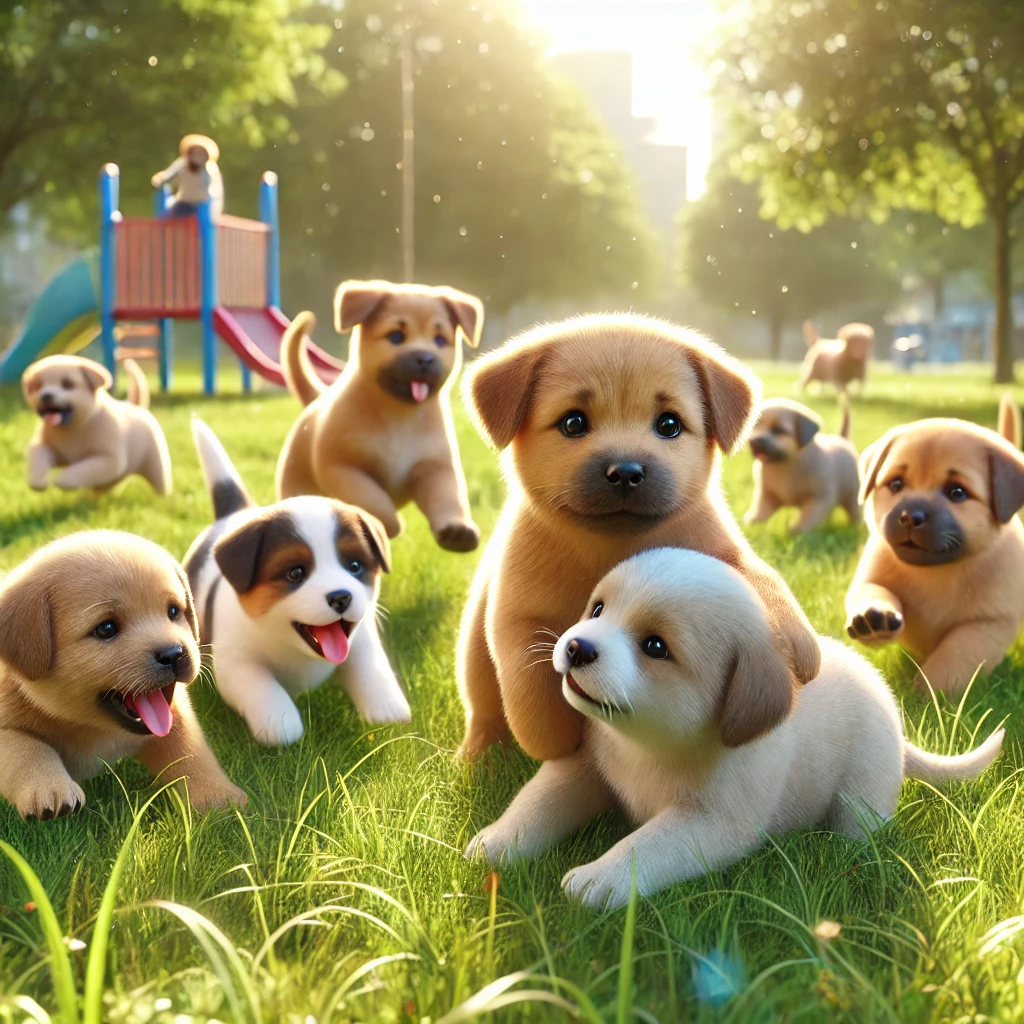Socialising your puppy is all about exposing them to different people, environments, and experiences to help them grow into confident, well-adjusted adult dogs. Early socialisation is key to preventing behavioural issues and ensuring your puppy becomes friendly and adaptable.
Why Socialisation is Important
Prevents Fear and Aggression
Proper socialisation helps prevent fear and aggression towards people, other animals, and new environments. Well-socialised puppies are less likely to develop behavioural problems.
Builds Confidence
Exposing your puppy to different experiences builds their confidence, making them more comfortable in various situations.
Enhances Training
Socialised puppies are generally easier to train as they are more relaxed and responsive to commands in different environments.
Key Socialisation Period
Critical Period
The critical socialisation period for puppies is between 3 and 14 weeks of age. During this time, they are most receptive to new experiences.
Socialisation Techniques
Introducing People
Expose your puppy to a variety of people, including men, women, children, and individuals wearing different types of clothing (hats, uniforms, etc.).
Meeting Other Dogs
Arrange controlled introductions with vaccinated, friendly dogs. This helps your puppy learn appropriate play behaviour and social cues.
Exploring Environments
Take your puppy to different environments, such as parks, busy streets, and pet-friendly stores. Allow them to experience various sights, sounds, and smells.
Positive Experiences
Reward-Based Approach
Use treats, praise, and toys to reward your puppy for positive interactions and calm behaviour during socialisation.
Short, Frequent Sessions
Keep socialisation sessions short and positive. Frequent exposure is more effective than long, overwhelming experiences.
Handling and Grooming
Gentle Handling
Get your puppy accustomed to being handled by gently touching their paws, ears, and mouth. This prepares them for grooming and vet visits.
Grooming Practice
Introduce grooming tools gradually and make grooming sessions positive with treats and praise.
Introducing New Experiences
Car Rides
Take your puppy on short car rides to get them used to travelling. Reward them for staying calm during the ride.
Different Surfaces
Expose your puppy to various surfaces like grass, gravel, tile, and carpet. This helps them become comfortable walking on different textures.
Preventing Negative Experiences
Controlled Exposure
Ensure that all socialisation experiences are positive and controlled. Avoid overwhelming or frightening situations.
Gradual Introduction
Introduce new experiences gradually. If your puppy shows signs of fear, take a step back and proceed at a slower pace.
Signs of Proper Socialisation
Relaxed and Happy
A well-socialised puppy is relaxed, happy, and confident in different environments and around various people and animals.
Positive Interactions
They show curiosity and engage in positive interactions without excessive fear or aggression.
Conclusion
Puppy socialisation is essential for raising a well-adjusted, confident, and friendly adult dog. By exposing your puppy to various people, environments, and experiences in a controlled and positive manner, you can prevent behavioural issues and ensure your puppy develops into a well-behaved companion.







